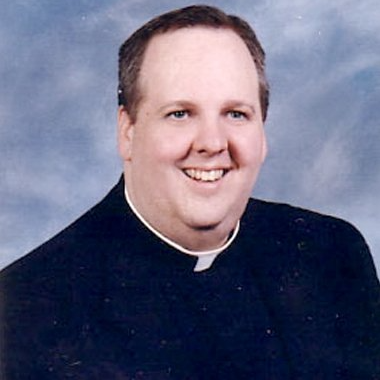FROM THE DESK OF THE PASTOR
Dear Friends in Christ,
Pope Leo in his Angelus talk this past Sunday highlights the penance the Lord desires from us and the way we ought to carry it out:
On the First Sunday of Lent, the Gospel tells us about Jesus who, led by the Spirit, enters the desert and is tempted by the devil (cf. Mt 4:1–11). After fasting for forty days, he feels the weight of his humanity: physically, through hunger, and morally, through the devil’s temptations. In this, he experiences the same struggle we all face on our journey. By resisting the evil one, he demonstrates how we, too, can overcome the devil’s deception and snares.
Through this Word of life, the liturgy invites us to view Lent as a luminous path. By means of prayer, fasting and almsgiving, we can renew our cooperation with the Lord in the crafting of our lives as a unique masterpiece. This involves allowing him to cleanse the stains and heal the wounds of sin, as we commit to letting our lives blossom in beauty until they attain the fullness of love — the only source of true happiness.
To be sure, this is a demanding journey. There is always the risk of discouragement or of being drawn to easier paths to satisfaction, such as wealth, fame and power (cf. Mt 4:3–8). These temptations, which Jesus himself faced, are merely poor substitutes for the joy for which we were created. Ultimately, they leave us dissatisfied, restless and empty.
For this reason, Saint Paul VI taught that penance — far from impoverishing our humanity — enriches, purifies and strengthens it, as we move toward a horizon that has “as its aim love and surrender to God” (Apostolic Constitution Paenitemini, 17 February 1966, I). Indeed, while penance makes us aware of our limitations, it also grants us the strength to overcome them and to live, with God’s help, in deeper communion with him and with one another.
In this time of grace, let us therefore practice penance generously, alongside prayer and works of mercy. Let us create space for silence by turning off televisions, radios and cell phones for a while. Let us meditate on the Word of God, approach the Sacraments, and listen to the voice of the Holy Spirit who speaks to us in our heart. Let us also listen to one another — in our families, workplaces and communities. Let us dedicate time to those who are alone, especially the elderly, the poor and the sick. By giving up what is superfluous, we can share what we save with those in need. Then, as Saint Augustine taught, our prayer offered in this way — “in humility and charity, by fasting and giving, by restraining ourselves and pardoning, by paying out good deeds and not paying back bad ones, by turning away from evil and doing good” (Sermons, 206, 3) — will reach heaven and give us peace.
We entrust our Lenten journey to the Virgin Mary, our Mother who always assists her children in times of trial. POPE LEO
I am away next weekend and return March 4, getting a little post- Christmas, pre-Lent (a little late) R and R. Please know that I praying for you while I am away. I pray that this Lent will be fruitful, for you, our churches and for the Universal Church
Blessings on your week!
Fr Johnson

